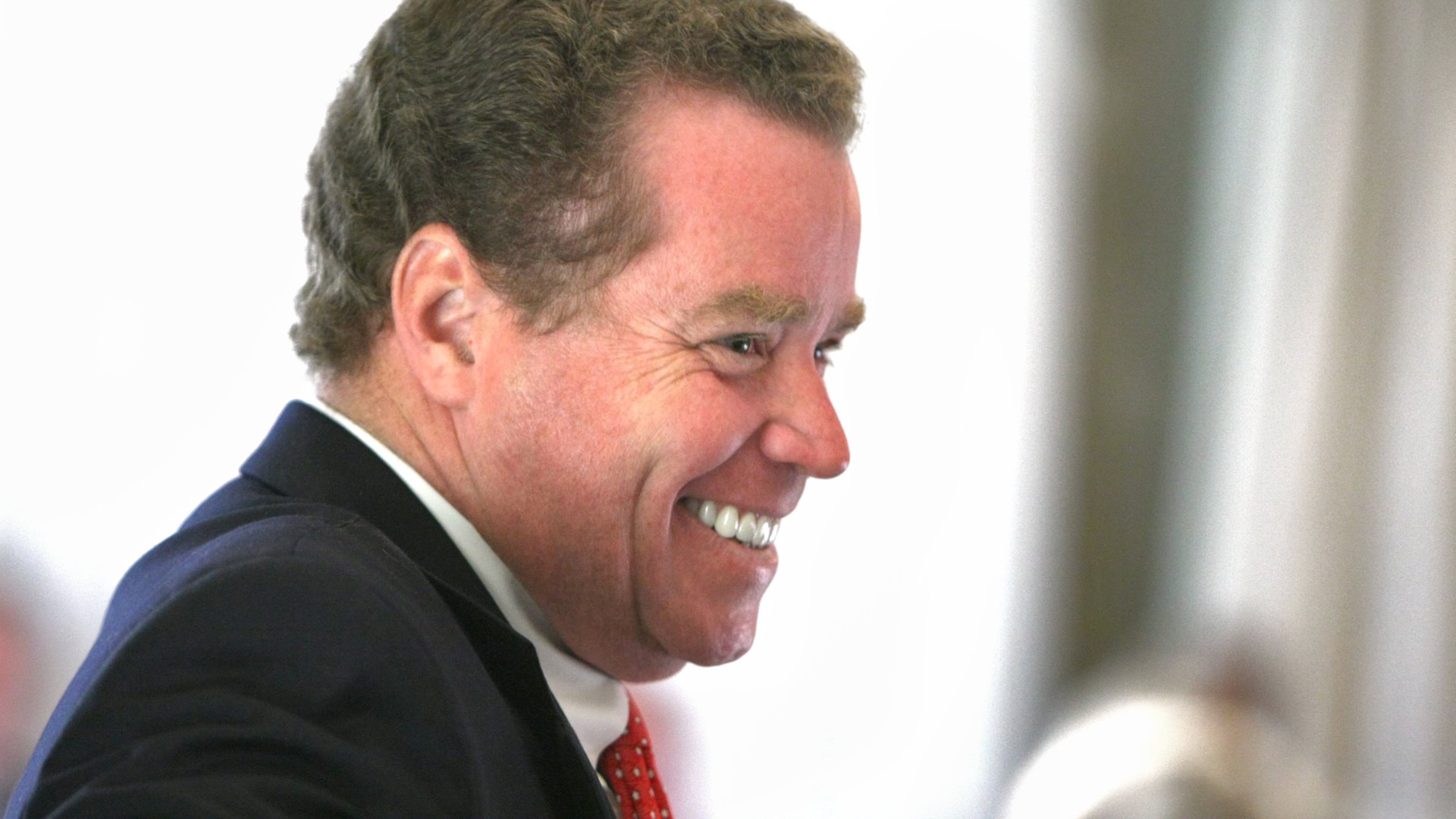After 13 years, Oxendine ethics cases go out with a whimper

The state ethics commission has been investigating and prosecuting campaign finance cases against former Georgia Insurance Commissioner John Oxendine since 2009, when he was considered the front-runner in the race for governor.
It is the longest-running ethics saga in state history.
On Thursday, the commission settled the last of the cases in exchange for about $128,000 in donor money — what was left over in his gubernatorial campaign account after paying lawyers for years to fight the charges.
Oxendine, who was accused of illegally using campaign donations for a down payment on a home, fancy cars and child care expenses, settled the case without the state making any finding in the case. Essentially, he agreed to give the state the leftover campaign money and the state decided it didn’t want to keep fighting him.
Without the agreement, Robert Lane, a lawyer for the commission, said the case could have gone on for another two to three years.
“There are probably people out there who think we should collect more,” said James D. Kreyenbuhl, chairman of the commission.
Another commission member, Rick Thompson, who was the agency’s director when the original cases were filed, said he would have preferred an admission of violations by Oxendine.
“I understand this has been going on for a very long time,” said Thompson, who voted against the agreement. “I do feel somewhat frustrated that there is no admission of wrongdoing.”
David Emadi, the current executive secretary of the commission, said, “The reality is, you don’t cut a check for $128,000 to the government if you’ve done nothing wrong.”
Douglas Chalmers, longtime attorney for Oxendine, said his client was pleased with the outcome.
“Every single allegation that was asserted over the past 13 years has now been dismissed,” he said. “We have no violations and no penalties and our client is happy to be able to put the 2010 gubernatorial election behind him.”
In a statement Thursday, Oxendine said: ”The law and the facts were clearly on my side. After the administrative law judge ruled in my favor on all issues, the commission knew that it would ultimately lose in court.
“Therefore, the state’s attorneys are the ones that approached my attorney and requested the resolution. It is a shame that so many state resources were wasted on this witch hunt.”
The $128,000 will now be transferred to the state treasury. By law, Oxendine could have returned the money to donors, donated it to charity or other candidates, or continued using it to pay his legal fees.
Following an Atlanta Journal-Constitution report, a complaint was filed in 2009 against Oxendine’s gubernatorial campaign for accepting $120,000 — 10 times the legal limit — in bundled contributions from two Georgia insurance companies when he was running for the Republican nomination for governor.
The ethics complaint against the insurers accused of giving the money to Oxendine was dismissed in 2014 because the ethics commission’s staff had made so little progress on it, in part because of staff turnover and seemingly endless drama at the agency at that time. But the commission didn’t dismiss charges against Oxendine, the recipient of the donations.
The case remained largely dormant until another AJC investigation reported in 2015 that Oxendine never returned more than $500,000 worth of leftover contributions from his gubernatorial bid, and that he kept and spent money raised for Republican runoff and general election campaigns that he never ran because he lost in the 2010 GOP primary.
Oxendine amended his campaign reports in October 2015 to show more than $700,000 left over, including $237,000 in loans to his law firm.
Following the AJC report, ethics commission staffers filed an amended complaint in 2015, accusing Oxendine of improperly spending more than $208,000 raised for the runoff and general elections and accepting more than the legal limit in contributions from 19 donors.
The commission dismissed many of the new charges that December, after Oxendine’s lawyer, Chalmers, argued that the statute of limitations had run out on charges involving the 2010 campaign. In other words, it had taken the commission too long to investigate and prosecute the cases.
The panel’s staff sought bank records to see what happened to the leftover money, but Oxendine fought subpoenas in the Georgia Supreme Court and federal courts, delaying the cases further.
After years of court battles, the commission in 2019 moved ahead on allegations that Oxendine spent campaign donations on luxury car leases, child care bills, an athletic club membership and a down payment on a $965,000 house. Under Georgia law, a candidate can’t collect contributions for a campaign and then use the money for things such as houses and cars for themselves.
The commission also voted to move ahead with the complaint on the bundled contributions. A state administrative law judge threw out that complaint in the fall.
OUR REPORTING
2009: The Atlanta Journal-Constitution reports that two insurance companies funneled $120,000 in contributions to John Oxendine’s campaign for governor, far in excess of the legal limit. An ethics complaint is filed against the campaign.
2015: The AJC reports that more than $500,000 in leftover campaign funds from his gubernatorial run disappeared from Oxendine’s reports filed in January. Oxendine said he made a mistake in the filing, but the AJC also reported he had not returned money he raised for races he never ran, such as the GOP runoff and general election in 2010.
2016-17: The ethics commission files charges over a loan Oxendine’s campaign made to his law firm. Oxendine files a suit against the commission.
2019: After years of court battles, the commission moves ahead on allegations that Oxendine spent campaign donations on luxury car leases, child care bills, an athletic club membership and a down payment on a $965,000 house.



